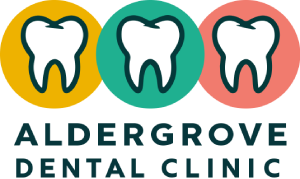Chewing Gum is Good or Bad for Dental Health

Have you ever wondered if chewing gum is good or bad for your teeth? Well, you’re not alone! It’s a common question that many people have. As a dentist near you, We’ve heard this question countless times. So, let’s explore into the details and separate fact from fiction.
Chewing Gum: Ally or Foe for Your Teeth?
You’re at the grocery store, staring at the colourful array of chewing gum options. You reach out to grab a pack, but then you hesitate. Is chewing gum going to harm your pearly whites, or could it actually be beneficial? It’s a conundrum, for sure.
What the Experts Say
Let’s start by unraveling what dentists, like myself, have to say about chewing gum. According to the American Dental Association (ADA), chewing sugarless gum for 20 minutes after meals can help reduce tooth decay.
How does it work?
Well, chewing gum stimulates saliva production, which helps neutralize acids in the mouth and wash away food particles.
Chewing sugarless gum after meals can help reduce tooth decay by stimulating saliva production.
Benefits of Chewing Gum
Now that we’ve got the basics down, let’s explore the positive side of chewing gum:
- Saliva Production: As mentioned earlier, chewing gum stimulates saliva production, which is like nature’s mouthwash. Saliva helps rinse away food particles and neutralize acids, reducing the risk of cavities.
- Fresh Breath: Need a quick breath freshener? Chewing gum can help mask bad breath and leave your mouth feeling minty and fresh.
- Stress Relief: Ever find yourself chewing on a piece of gum when you’re feeling stressed or anxious? Well, you’re onto something! Chewing gum has been shown to help reduce stress and improve focus.
Potential Risks of Chewing Gum
While chewing gum can have its benefits, there are also some potential drawbacks to consider:
- Jaw Pain: Excessive gum chewing can lead to jaw pain or temporomandibular joint (TMJ) disorders, especially if you have a habit of chewing on one side of your mouth more than the other.
- Sugar Content: Not all chewing gum is created equal. Some varieties contain sugar, which can contribute to tooth decay if chewed frequently.
- TMJ Issues: If you already have TMJ issues, chewing gum may exacerbate symptoms like jaw clicking or popping.
The Final Chew
So, what’s the verdict? Is chewing gum a friend or foe to your dental health? As with most things in life, moderation is key.
Chewing sugarless gum in moderation can be a useful tool in your oral hygiene arsenal, helping to freshen your breath, stimulate saliva production, and potentially reduce the risk of cavities.
However, excessive gum chewing or chewing gum with sugar can have negative consequences for your teeth and jaw.
Aldergrove Dental Clinic’s Takeaway:
At Aldergrove Dental Clinic, we emphasize the importance of maintaining good oral hygiene habits, including brushing twice a day, flossing daily, and visiting your dentist regularly for check-ups and cleanings. While chewing gum can complement these efforts, it should never be a substitute for proper brushing and flossing.
So, next time you’re tempted to reach for that pack of gum, go ahead and indulge – just make sure it’s sugarless, and remember to chew responsibly!
Don’t hesitate to reach out to our dentist in West Edmonton. Our team of experts is here to help you achieve a healthy, happy smile.
Remember, when it comes to chewing gum and dental health, knowledge is key. So, keep chewing wisely and smiling brightly!
